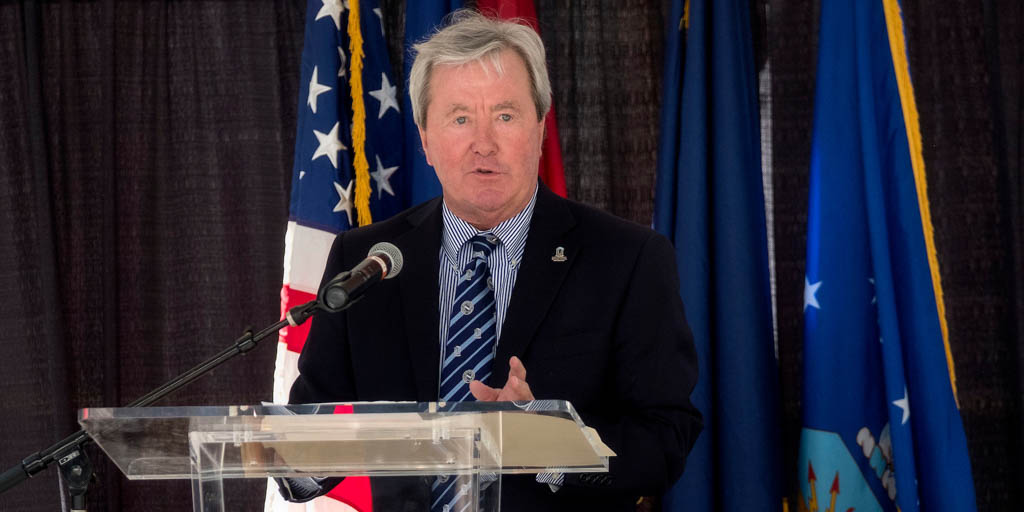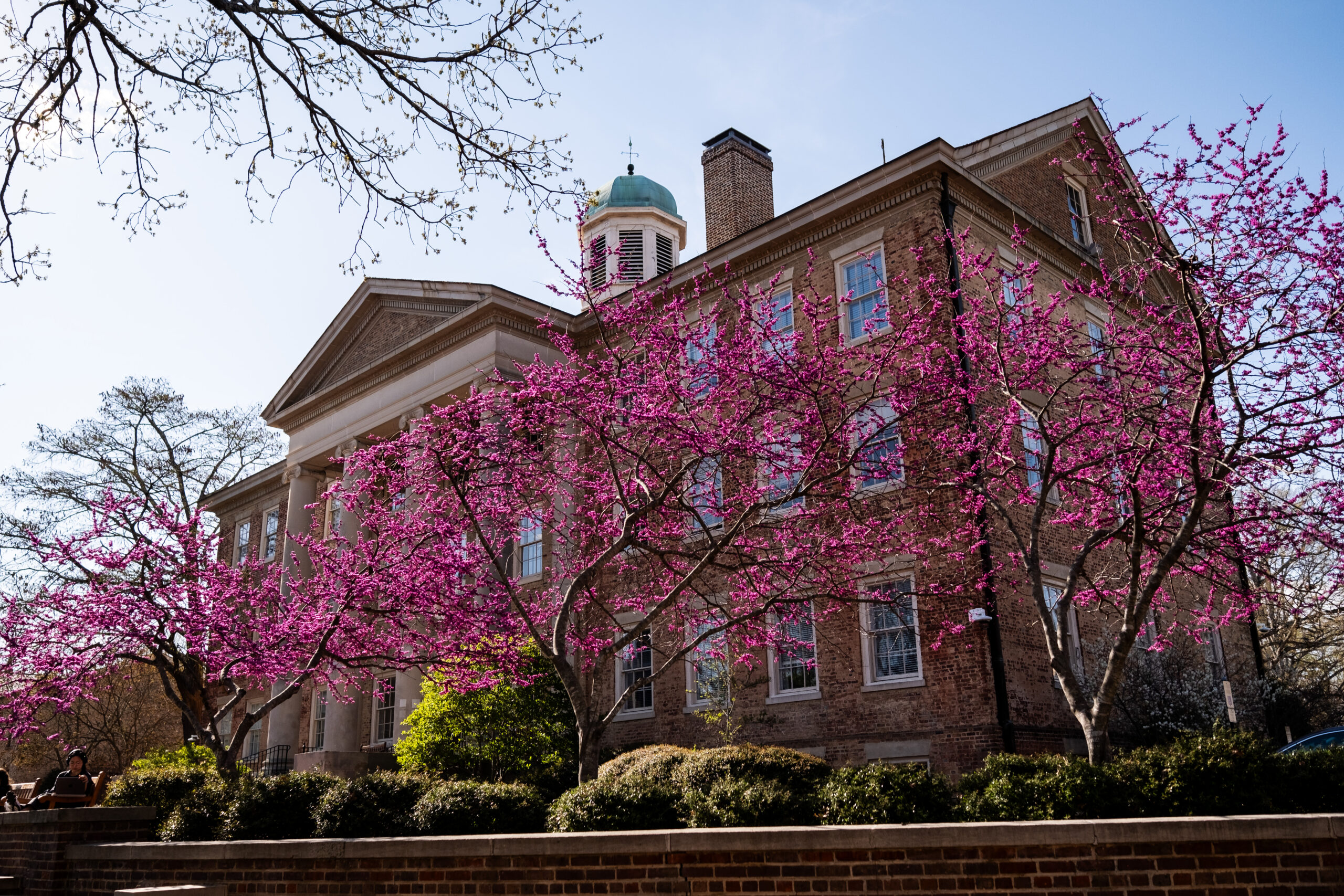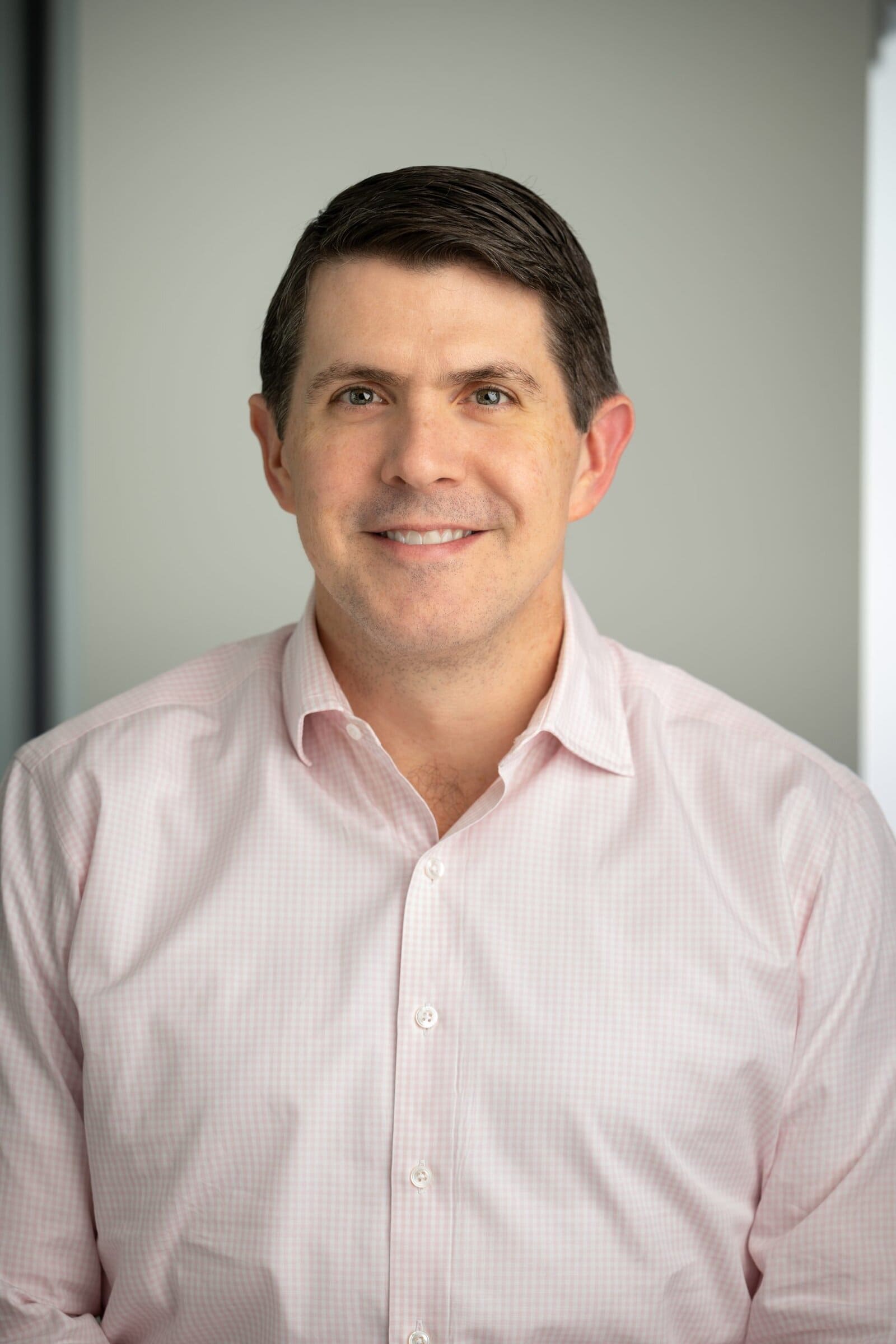
Haywood Cochrane, chair of the UNC–Chapel Hill Board of Trustees, speaks during the dedication ceremony for the Carolina Veterans Resource Center held September 2017.
Technically, Haywood Cochrane ’70 is retired—but you wouldn’t know by looking at his schedule. He became a trustee of UNC-Chapel Hill five years ago and is now the chair of the board.
“Despite what you might hear from people, it’s a full-time job,” he says.
To accommodate his commitment to the board, Haywood moved from Elon to Chapel Hill. He juggles his trustee responsibilities with his role as a single dad to two sons: a 19-year-old and a 20-year-old who attend Georgetown and Rice Universities. Plus, he keeps an eye on his various investments in small companies. He doesn’t have as much time for fun as you’d expect from a retired man.
“I gave up golf. I haven’t been to my beach house in a year,” he says—but not with bitterness.
“What I do for fun is wake up in the morning, enjoy the fact that I’m alive, and concentrate on trying to help the University.”
And he really does consider himself lucky to be alive. In April 2018, Haywood underwent open-heart surgery.
“They found a 10-inch blood clot in my heart,” he says. “I had a time bomb in my system.”
The same week as the surgery, Haywood developed back spasms. For the past few months, he’s been focused on rehabilitating both his heart and his back—on top of everything else.
And yet, he always has time for other Morehead-Cains. As an undergraduate, Haywood played on UNC’s football team. Even though he was a scholar before the Summer Enrichment Program was launched, he says his relationships with Morehead-Cains have always been deeper than those from any other group.
“The influence of fellow football players absolutely disappeared after about two years,” Haywood says. “But the influence of my fellow Moreheads remains today.”
And he considers himself “an unlikely Morehead.”
“I grew up in a very poor family in Eastern North Carolina,” he says. If he hadn’t received the scholarship, he would have attended Wake Forest University or East Carolina University on a football scholarship.
“That was okay with me,” he says. “But then I got the Morehead, and that changed everything. I said then to my parents, ‘This is life-changing.’ Little did I know how much it would be.”
Haywood is grateful that the scholarship kept him from having to play football for four years to get an education. He’s also grateful for the professional opportunities opened by the scholarship.
“Having Morehead-Cain on my resume—that’s as good a calling card as you could have.”
Haywood says the name recognition was especially helpful when he was beginning his business career in New York City.
“They like Southern accents, they like Southern boys—we smile a lot, we’ve got good manners—but to be a Morehead-Cain, it was an incredible head start.”
And that advantage extends beyond the professional.
“There’s not a trip I take where I don’t find somebody who’s a Morehead-Cain who I can reach out to and feel comfortable that I’m getting great advice and great support, as a result of being a Morehead-Cain Scholar.”
Haywood’s gratitude for that community is a large part of what motivates him to serve as a UNC trustee today.
“That they would admit and educate somebody like me . . . the University had that kind of long-term view of what’s good for the state, and it still has that. UNC has a view of creating opportunity. It did it for me and it continues to do it. The UNC system is the biggest asset that we have in this state.”


